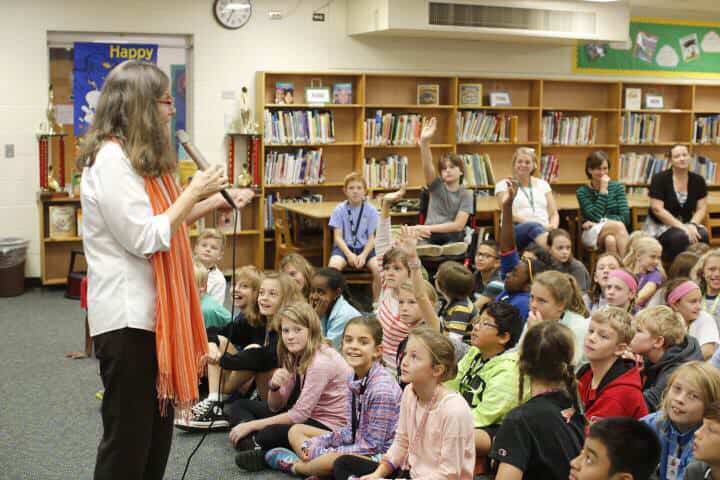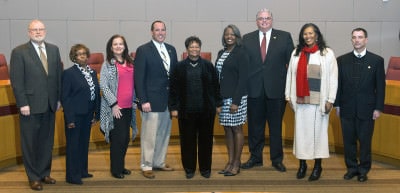

The Charlotte-Mecklenburg school board is planning to form a group of local elected officials who will work with them to promote public education and tackle weighty issues. The Joint Elected Official Team, or JEOT, will begin by offering thoughts on the district’s student assignment review.
Elected officials from the city of Charlotte, Mecklenburg County, and six suburban towns within the Charlotte-Mecklenburg Schools footprint — Pineville, Matthews, and Mint Hill in the south and Huntersville, Davidson, and Cornelius in the north — would be invited to participate.
The idea, cooked up by school board members Eric Davis and Ericka Ellis-Stewart along with Charlotte City Council member Vi Lyles, gets at a long-running frustration among education leaders in this community. For years, school board members, CMS administrators, and public education advocates have been concerned by the lack of engagement among elected officials on such an important topic.
For years, school board members, CMS administrators, and public education advocates have been concerned by the lack of engagement among elected officials on such an important topic.
“While the CMS Board of Education has a leading role in this endeavor, our students need each branch of local government to work more collaboratively to respond to the challenges and to take advantage of the opportunities,” the board wrote in a statement presented last week. “Essentially more collaborative policy making, greater teamwork in strategic planning, and more partnership in implementation will better serve our students and our entire community.”
Mecklenburg’s county commissioners have funding authority for CMS, and are highly engaged in the district’s work through the budget process. However, county commissioners are less involved in CMS issues outside of that. The Charlotte City Council devotes little time and money to CMS or to education issues in general. The town boards and commissions are similarly busy with their own issues, and don’t focus on schools.
The point school board members make is that although the other groups may not have direct authority over or responsibility for CMS, the district’s mission is too important and its impacts are too broad for any elected official to ignore.
“It’s about demonstrating a commitment to partnership and teamwork,” Davis said at a CMS policy committee meeting last week.
From a practical standpoint, it can be difficult to get elected officials — all with busy political schedules on top of full-time jobs — around a table to meet regularly. Any JEOT would be designed more for collaboration and feedback versus decision making. But there are precedents that indicate such a group could be useful.
The Charlotte Chamber hosts quarterly elected official breakfasts to rally city, county, and state policymakers. Other organizations host similar gatherings. The county commission and school board hold occasional joint meetings, and the city council and county commission do too. But all three groups rarely gather, and they don’t include the suburban town leaders.
CMS’ student assignment review offers a unique opportunity for elected officials to collaborate on education issues. To date, the school board has been working to develop guiding principles to help frame the discussion of student assignment against a backdrop of race, opportunity, and equality. But as that conversation moves from theory to action, buy-in from the entire community is essential.
CMS leaders believe their best chance at crafting a new student assignment plan that will be broadly embraced is through collaboration with their peers throughout Mecklenburg County.
At a community forum about race, poverty, and student achievement this summer, one of the speakers made the case that although the school board has the legal mandate to “get it right,” other elected officials bear a moral responsibility to play a more active role in public education.
In the audience, several school board members nodded emphatically.


